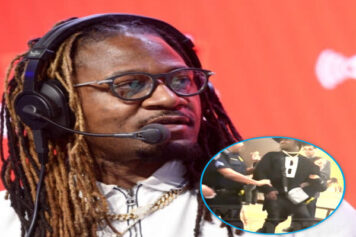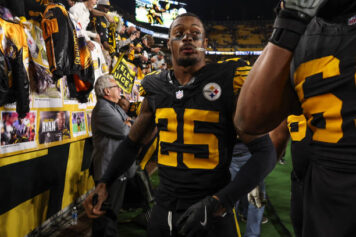This is the second part of our two part installment on the history of kickboxing. Read Part 1 here
Frank Dux vs. Chong Li might have captivated the casual and die-hard martial arts fan, but that was just a part of the emergence of kickboxing from the underground arena into the mainstream and onto television and the silver screen. Decades of amazing fights and displays of skill followed, and with it stars emerged who became legends of the sport, and legends with roots of culture.
One of those was Ernesto Hoost.
On October 14th, 2014, when Ernesto Hoost stepped into the ring to face Peter Aerts for the World Kickboxing Organizations inaugural Heavyweight Title, it was the last fight in a storied career you might have never heard of.
The Dutch born fighter had been fighting since 1983 and if he played in the NBA, his name would hold weight with comparable greats like Michael Jordan, Wilt Chamberlain and more. As one of the pioneering kick boxers of color, Hoosts career was true to his pseudonym, Mr. Perfect.
He started his career on a 10-0 run, including 7 knockouts, before he began collecting titles like accessories to merely match his legend. Of his total 121 kick boxing and Muay Thai matches, Hoost has collected an impressive 99 wins (62 of which were by (T)KO), 21 losses and 1 draw. He also amassed 22 World Titles during a career that spanned 27 years.
Hoost defeated his longtime doppelganger Peter Aerts via unanimous decision after 3 rounds, winning his 22nd title. The two had faced each other 6 times with Hoost winning 4 of those meetings. The part to note is that each meeting was either won or lost by each man via decision and their battles are epic time stamps in kickboxing history.
Today the only kickboxing promotion accessible to the general U.S. public is Glory World Series, a tournament and Super Fight promoter that airs on Spike TV. The organization has an event tonight on Spike, but is the American combat sporting fans really aware of their presence? And what about casual martial arts fans?
Why is it that the majority of the combat sports consuming public have no idea of the history of kickboxings progenitors like Hoost?
Against the backdrop of the current state of fighting sports, boxing and mixed martial arts are the clear leaders in relation to the broader publics interest. Although the lead position between the two is constantly debated, the fact remains that they are the two front runners in the field. And while many felt that the quality of boxing competitions and its individual controversies began to taint the sport, the last 3-5 years has produced a resurgence in the sports star power and subsequent popularity. The recent moves by Al Haymon only goes to strengthening this fact.
MMA has become a global powerhouse as well, mainly in part to the worldwide expansion of the UFC via consistent continental event offerings and expanded TV distribution. With the rise of bankable star champions like Jon Jones and Ronda Rousey, the UFC has defined itself well in the market and set up the stage for increased competition in the form of Bellator MMA; sort of a Coke-Pepsi taste test challenge equivalent for MMA fans.
Although kickboxing has been around longer than MMA there is still a very obvious obscurity for the U.S. public, and Glory and Spike were extremely intuitive to be the first to make a big splash in the market. Once the UFC and the network parted ways, Glory filled that slot to complement the MMA offerings of Bellator MMA. Glory has the unique challenge of figuring out how to brand its athletes for a State side audience who now have to decide to learn yet another blood sport.
The easiest way to do this is to define and elevate its stars in the way boxing and MMA have.
Boxing benefited from the self-promoting exploits of Floyd Money Mayweather who ditched the Pretty Boy moniker to appeal to a cash craving urban demographic. The result is the title of highest grossing PPV star in the world. MMA has developed new jacks like Connor McGregor simply by giving them a bully pulpit to incite interest from.
With stars like Tyrone Spong, Wayne Barrett and Joe Schilling in their roster, will Glory understand how to translate the difference between a tournament and a Super fight to the fans via the allure of intriguing match-ups? The power rests in the personalities of the athletes and only time will tell if kickboxing will figure that out.
But like the aftermath of Blood Sport, the future looks promising.



